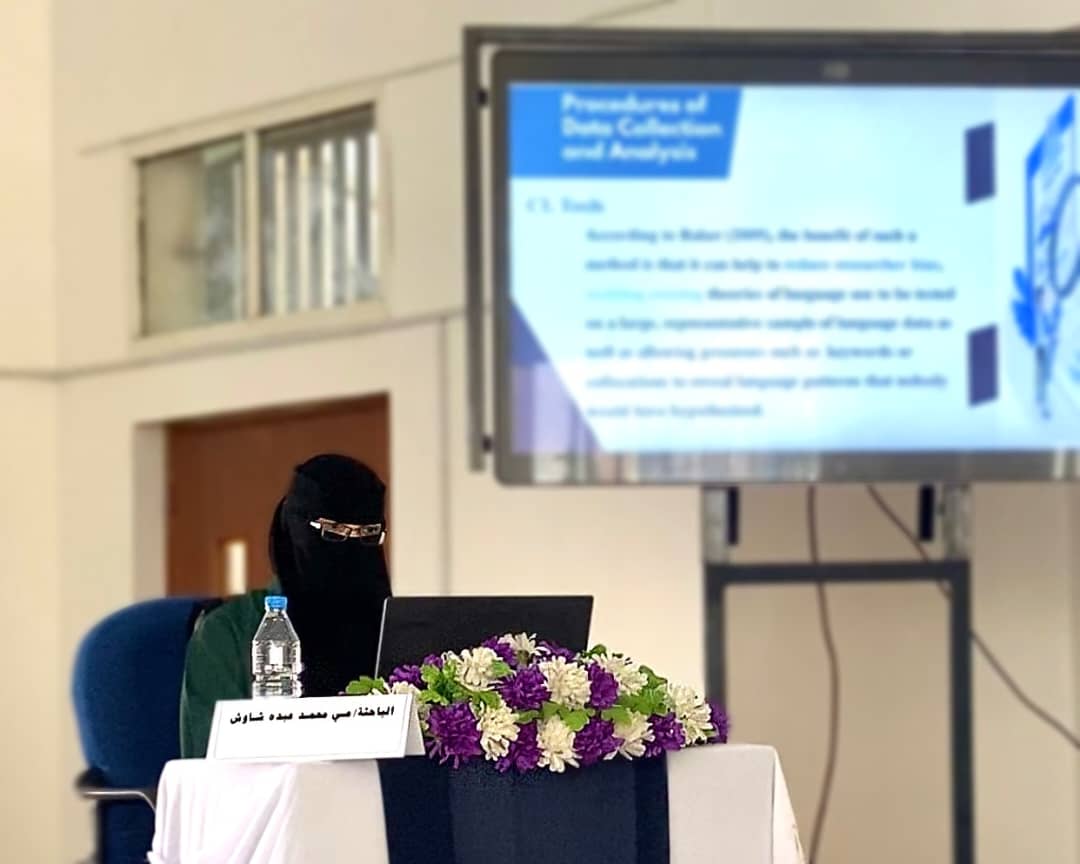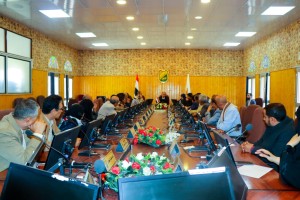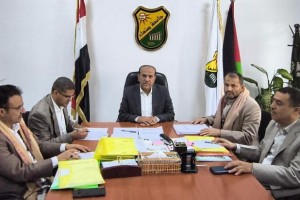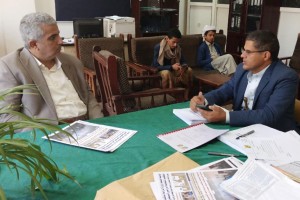Master’s Degree Awarded to Researcher Mai Shawesh from the English Department, Faculty of Languages
- Categories Letters and Promotions - Graduate Studies, news, Regulations - Postgraduate Studies
- Date May 11, 2025

Researcher Mai Mohammed Abdo Ahmed Shawesh has been awarded a Master’s degree with a score of 94% (Excellent) from the Department of English Language, Faculty of Languages at Sana’a University for her thesis titled “(Scrutinizing the Depiction of Female Characters in Charlotte Brontë’s Novels from a Feminist Perspective: A Corpus Linguistics-Based Critical Discourse Analysis)”.
The viva took place on Monday, 7 Dhu al-Qadah 1446 AH, corresponding to May 5, 2025 AD.
The viva voce evaluation committee consisted of:
* Associate Prof. Ibrahim Naji Taj Al-Din – Internal Examiner – Sana’a University – Chairman.
* Associate Prof. Abdullah Ali Aleryani – Supervisor – Thamar University – Member.
* Associate Prof. Mansour Jarallah Sarhan – External Examiner – Ibb University – Member.
The thesis aimed to investigate Charlotte Brontë’s conception of feminism in her four novels: Jane Eyre, Shirley, The Professor, and Villette. To achieve the study’s objectives, a quantitative and qualitative research approach was followed, using research methodologies in Corpus Linguistics (CL) and Feminist Critical Discourse Analysis.
The study revealed several conclusions, including:
* An imbalance in the frequency of feminine and masculine keywords, with a moderate preference for feminine keywords; this hints at a possible feminist perspective in the author’s writings.
* The analysis of verbal associations also revealed Brontë’s portrayal of women as inferior to men and as struggling against gender-based societal practices prevalent in the Victorian era.
* The feminist critical discourse analysis conducted on the sample revealed themes of patriarchal oppression and the objectification of women, where male characters use demeaning language that undermines women’s independence and identity.
* The findings also revealed the intersection of gender and race, where women were depicted as possessions, while the author simultaneously challenges traditional norms by acknowledging women’s cognitive authority and their desire for self-determination.
The study suggested several recommendations, including:
* English language students should acquire a basic understanding and ability to use computers and modern technology in the linguistic analysis of literary works.
* Linguistics and literature students should possess sufficient knowledge about the use of Corpus Linguistics (CL) and Critical Discourse Analysis (CDA) for text analysis.
* A course in Corpus Linguistics should be included in the curricula of English language programs to enable students to use this method and its various tools in analyzing a range of texts.
* Computer programs such as Wordsmith and Wmatrix should be made freely available in universities for linguistics and literature students.
The Viva voce was attended by a number of academics, researchers, students, interested individuals, as well as the researcher’s colleagues and family members.
Discover more from Sana'a University
Subscribe to get the latest posts sent to your email.
Previous post






